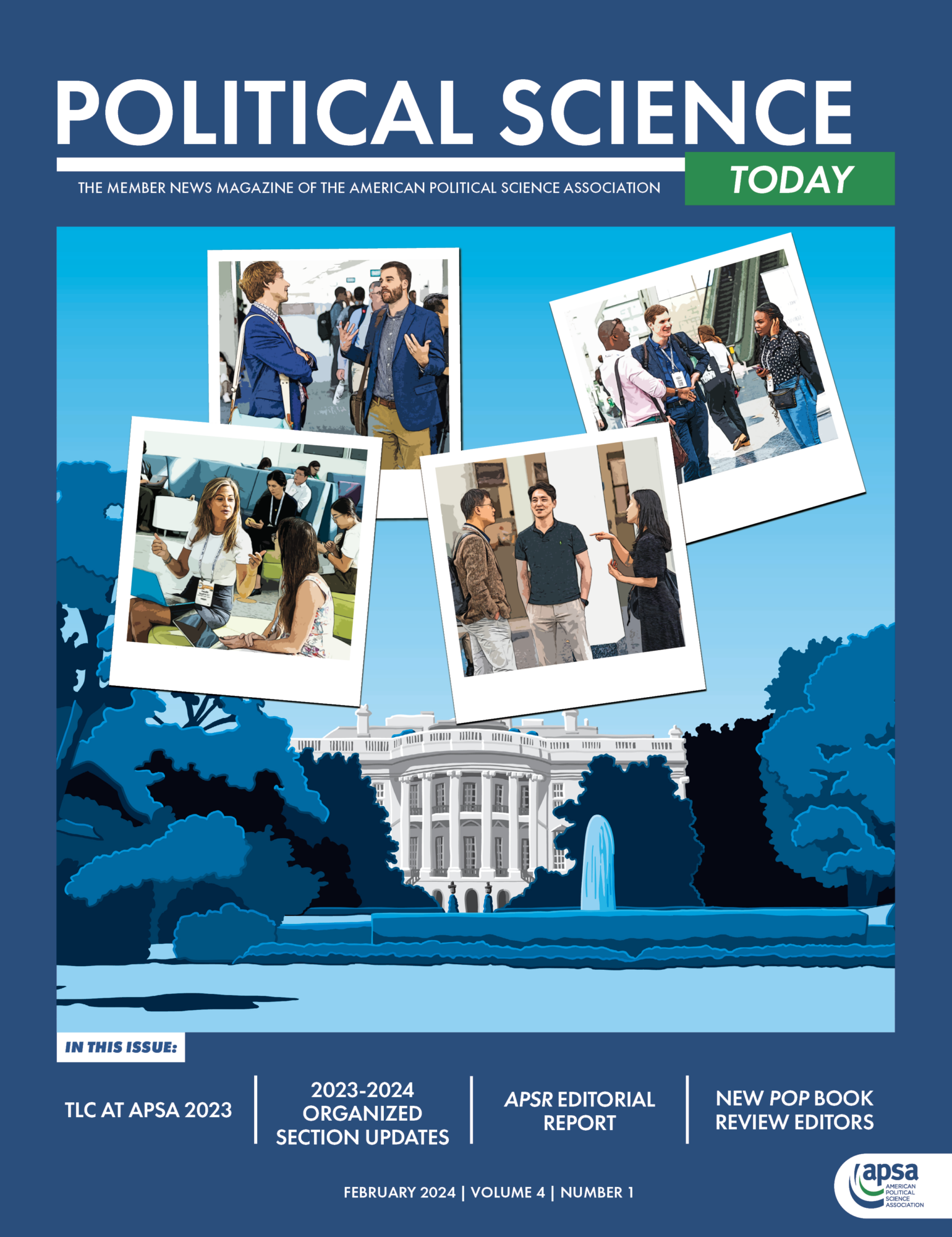This essay originally appeared in the Political Science Educator’s Winter/Spring 2017 issue.
Xander E. Laughlin, Indiana University, Bloomington IN
When I began my undergraduate career, a political science faculty member at my university selected me to serve as her research assistant. While research assistantships benefit the professor by giving her a “helping hand” in her research, it also benefits the student. My experience in this position has been valuable in two key respects, each discussed in turn. First, it has presented a challenging learning opportunity through which I have grown not only academically but professionally; and second, it has opened doors to internships and other competitive opportunities. Indeed, because of my positive experience, I often recommend that my friends and peers seek out similar opportunities.
As I would find out, a research assistantship, coupled with a full-time academic schedule, would be demanding, yet rewarding. An obvious reward has been the further development of my critical thinking skills. One assignment required me to review literature from multiple academic journals. Another required me to review manuscripts on a related topic for a forthcoming edited volume. Commenting on forthcoming publications from scholars in the field helped me to think more critically about their content. I read over recommendations given to authors by my supervisor and other scholars of civic engagement, and they first helped me to see what kind of questions I wasn’t asking. My relatively passive reading habits—which did not lend themselves particularly well to rigorous inquiry–slowly transformed into a more nuanced approach. I witnessed questions I had never bothered to ask arise in my mind: What does the author mean by this? Wait, but is the present finding not at odds with previous research on the subject? How does this research fit into the body of literature and what is its broader contribution? In short, the process of reading ceased to be a passive act in which I failed to recognize the intimate relationship between previous and new knowledge. Instead it became a dynamic process in which I learned to look at information with a critical eye.
Another skill that I further developed was organization. Throughout my research assistant experience, I was responsible for organizing and keeping track of vast amounts of data for multiple projects with different deadlines. I tracked new participants, IRB approval forms, administrative permissions, campus contacts, email communications, and more for a multi-campus research survey. Meanwhile, I tracked course titles, classroom activities, learning objectives, learning outcomes, and assessment data for several review essays on civic education. I also conducted my own multi-campus research project on voter ID compliance with state voter ID laws. Whether helping to administer a survey on campuses across the country, conducting a systematic review of different approaches to civic education, or conducting a review of Indiana college campuses’ compliance with state voter ID laws, the work required attention to details and careful documentation. At first, it was a lot to take in; after all, I had never been responsible for keeping track of so much data with the added necessity of accuracy. With time, however, I learned to balance the demands of multiple projects and their deadlines.
Perhaps one of the most important parts of this experience has been skill transfer. In other classes, and indeed outside of them as well, I am able to apply these skills to enrich my understanding of what I am learning or the information presented to me. Whether a class lecture, an academic article, or a piece of news, I am persistently questioning with skepticism and critically examining new information.
Yet another benefit from this experience has been greater access to other competitive opportunities. Impressed by this experience in particular, and my commitment to experiential learning overall, professors and others have offered me significant opportunities for which I am grateful. For example, an economics professor offered me an undergraduate instructor (UGI) position while a different professor offered me a peer-assisted student learning (PASS) position. Both would require me to lead a discussion section where students could seek clarification on concepts and ask general questions. An academic publisher affiliated with the university offered me yet another opportunity. It would require me to serve as an editor for a forthcoming book. I have also been very lucky to receive scholarships, at least in part due to my experience as a research assistant. Each of these opportunities for additional experience and funding will further my knowledge and skill-set moving forward.
My supervisor has made it clear that my work has helped her to achieve her professional goals. With this essay, I seek to emphasize that the benefit was mutual. I strongly encourage professors to consider working with undergraduate research assistants. Whether for credit or for pay, the value of the experience is difficult to measure. The benefits are extensive and far-reaching.
Political Science Educator: Editor’s Reading List presents select PSE articles from the previous 15 years. APSA Educate is please to announce it will feature all future Political Science Educator‘s issues.





